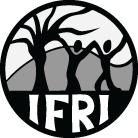Governance of forest and agricultural landscapes: project outputs
Journal articles
Alves-Pinto H.N., Newton P., Pinto L.F.G. Submitted. Scaling up sustainability: certification of the cattle supply chain in Brazil. Environmental Conservation.
Winters, P., Kuo, H., Niljinda, C., Chen, B., Daryanto, S., Alves-Pinto, H.N., Ongun, M., Newton, P. Submitted. Designing for value: structuring voluntary certification programs to increase producer participation and stakeholder credibility. Journal of Sustainable Forestry.
Newton, P., Alves-Pinto, H.N., Pinto, L.F.G. In review. Certification, forest conservation, and cattle: theories and evidence of change in Brazil. Conservation Letters.
Newton, P., Agrawal, A., Wollenberg, E. 2013. Enhancing the sustainability of commodity supply chains in tropical forest and agricultural landscapes. Global Environmental Change. Paper
Agrawal, A., Persha, L., Wollenberg, E. In review. Governance, institutions and incentives for climate change mitigation and livelihoods at the forest-farm interface. Introduction to Special Issue at Global Environmental Change. Presentation
Working papers
Alves-Pinto, H.N., Newton, P., Pinto, L.F.G. 2013. Certifying sustainability: opportunities and challenges for the cattle supply chain in Brazil. CCAFS Working Paper no. 57. CGIAR Research Program on Climate Change, Agriculture and Food Security (CCAFS). Copenhagen, Denmark. CCAFS working paper website.
Newton, P., Agrawal, A., Wollenberg, E. 2013. Interventions for achieving sustainability in tropical forest and agricultural landscapes. CAPRi Working Paper No. 110 Paper, CAPRi working paper website.
Theses
Winters, P., Chen, B., Kuo, H., Niljinda, C. 2014. Designing for value: structuring voluntary certification programs to increase producer participation and stakeholder credibility. Master’s project report, University of Michigan, Ann Arbor, USA. Available here.
Conference presentations
School of Natural Resources and Environment Capstone conference. ‘Designing for value: increasing participation in voluntary certification programs’. University of Michigan, Ann Arbor, USA. Apr. 11, 2014. View here.
Global Land Project 2nd Open Science Meeting. ‘Certification, forest conservation, and cattle: theories and evidence of change in Brazil’. Humboldt University, Berlin, Germany. Mar. 19-21, 2014. View here.
20th Annual Conference of the International Society of Tropical Foresters. ‘Designing for value: increasing participation in voluntary certification programs’. Yale School of Forestry & Environmental Studies, Newhaven, USA. Jan. 30-Feb. 1, 2014. View here and here (00:10:30 – 00:23:30).
Global Landscapes Forum, COP19. ‘Certifying sustainability: opportunities and challenges for the cattle supply chain in Brazil’. University of Warsaw, Warsaw, Poland. Nov. 16-17, 2013. View here.
Association of American Geographers Annual Meeting. ‘Institutions, incentives and information: a framework for sustainable commodity supply chains’. Westin Bonaventure Hotel, Los Angeles, USA. Apr. 9-13, 2013. View here.
19th Annual Conference of the International Society of Tropical Foresters. ‘Food & forests: innovative solutions in tropical landscapes’. Yale School of Forestry & Environmental Studies, Newhaven, USA. Jan. 24-26, 2013. View here (00:56:30 – 01:15:30).
CAPRi & CCAFS workshop: Institutions for Inclusive Climate-Smart Agriculture. ‘Interventions for achieving sustainability in tropical forest and agricultural landscapes’. ICRAF, Nairobi, Kenya. Sept. 10-13, 2012. View here.
Media
Blog: Designing for value: structuring voluntary certification programs to increase producer participation and stakeholder credibility. Available here. May 6, 2014.
Webcast: Global Landscapes Forum Technical and Networking Session. Available here. Nov. 16, 2013.
Blog: Breaking the link between commodity agriculture and deforestation. Available here. Nov. 15, 2013.
Blog: Brazilian cattle ranching and sustainable certification: opportunities and barriers. Available here. Sept. 26, 2013.
Blog: Exploring sustainable palm oil production in Indonesia. Available here. Aug. 15, 2013.
Blog: Carbon and communities: innovative approaches to agriculture and forest management in Indonesia. Available here. Feb. 28, 2013.
Interview: Food Climate Research Network. Peter Newton and Lini Wollenberg CCAFS Available here. Nov. 2012.
Workshops
Feb 2013, Jakarta, Indonesia
A project workshop was held in Jakarta, Indonesia on February 8, 2013, hosted by the Ford Foundation. You can read the workshop objectives, and a workshop summary. Presentations were made by:
- Peter Newton (UM) & Lini Wollenberg (CCAFS), describing the UM-CCAFS research project (presentation)
- Rachel Diprose (IAFCP), describing the Kalimantan Forests and Climate Partnership (KFCP)
- Anne Rosenberger & Andika Putraditama (WRI), describing Project POTICO (presentation)
- Jwee Tat Lee (Golden Agri-Resources), describing the GAR Forest Conservation Policy (presentation)
- Dharsono Hartono (PT-RMU), describing the Katingan Project (presentation)
Aug 2011, Washington, D.C.
Five working papers were presented at a workshop hosted by IFPRI in Washington, DC in August 2011 as part of the first phase of this project.
- Robinson, B., Holland, M., Naughton-Treves, L. Does secure land tenure save forests? A review of the relationship between land tenure and tropical deforestation. CCAFS Working Paper No. 7. Paper
- Börner, J., Wunder, S., Wertz-Kanounnikoff, S., Hyman, G., Nascimento, N. REDD sticks and carrots in the Brazilian Amazon. CCAFS Working Paper No. 8. Paper, Presentation
- Fox, J., Castella, J., Ziegler, A. Swidden, rubber and carbon can REDD+ work for people and the environment in Montane Mainland Southeast Asia? CCAFS Working Paper No. 9. Paper
- Barbier, E., Tesfaw, A. Overcoming tenurial constraints to carbon forestry projects in Africa. Working Paper No. 10. Paper, Presentation
- Cohn, A., Bowman, M., Zilberman, D., O’Neil, K. The viability of cattle ranching intensification in Brazil as a strategy to spare land and mitigate greenhouse gas emissions. Working Paper No. 11. Paper
News
IFRI Special Issue Collaboration
(17/09/2016)
FLARE Announces Keynote Speakers

